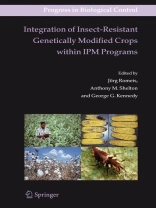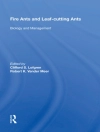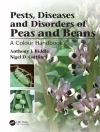Insect pests remain one of the main constraints to food and fiber production worldwide despite farmers deploying a range of techniques to protect their crops. Modern pest control is guided by the principles of integrated pest management (IPM) with pest resistant germplasm being an important part of the foundation. Since 1996, when the first genetically modified (GM) insect-resistant maize variety was commercialized in the USA, the area planted to insect-resistant GM varieties has grown dramatically, representing the fastest adoption rate of any agricultural technology in human history. The goal of our book is to provide an overview on the role insect-resistant GM plants play in different crop systems worldwide. We hope that the book will contribute to a more rational debate about the role GM crops can play in IPM for food and fiber production.
Tabella dei contenuti
Integration of Insect-Resistant Genetically Modified Crops within IPM Programs.- How Governmental Regulation Can Help or Hinder the Integration of Bt Crops within IPM Programs.- Insecticidal Genetically Modified Crops and Insect Resistance Management (IRM).- Insect-Resistant Transgenic Crops and Biological Control.- The Present and Future Role of Insect-Resistant Genetically Modified Maize in IPM.- The Present and Future Role of Insect-Resistant Genetically Modified Cotton in IPM.- The Present and Future Role of Insect-Resistant Genetically Modified Potato Cultivars in IPM.- Bt Rice in Asia: Potential Benefits, Impact, and Sustainability.- Transgenic Vegetables and Fruits for Control of Insects and Insect-Vectored Pathogens.- Landscape Effects of Insect-Resistant Genetically Modified Crops.- Have Bt Crops Led to Changes in Insecticide Use Patterns and Impacted IPM?.- Economic and Social Considerations in the Adoption of Bt Crops.- Beyond Bt: Alternative Strategies for Insect-Resistant Genetically Modified Crops.- IPM and Insect-Protected Transgenic Plants: Thoughts for the Future.












